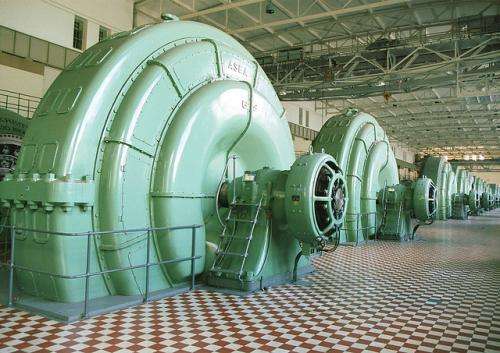Scrubbers should offset residue accumulation

A leading applied engineer says suitably-designed intake scrubbers would improve the operation of air heaters in coal-fired boilers, and reduce acid rain-causing emissions.
Curtin University Associate Professor Hari Vuthaluru says a boiler's air heater makes it work more efficiently by providing pre-heated air.
"If there is a deposit built up over the surface, the heat transfer conditions will be altered and the heat transfer rate will be diminished," A/Prof Vuthaluru says.
"The whole purpose of the heater is lost and that will have a significant effect on the overall operation of the power plant."
Together with CSIRO mineralogist David French, he studied a clinkering (hard residue) problem within a 300 megawatt electric pulverised fuel boiler's air feed heater at Collie Power Station.
Prof Vuthaluru says they found no carbon residue, but the air feed heater appeared to be taking in a lot of sulphate-containing gas, which acts as a cementing agent.
He says sulphurous acid forms within the equipment, reacting with glassy amorphous fly ash to form aluminium and iron sulphates.
They discovered this after examining fly ash samples under electron microscopes to determine their chemical composition.
Larger samples could act as storyteller
They then compared this composition to the composition of the feed coal and the power plant's gaseous emissions.
Prof Vuthaluru says they would have liked to obtain larger samples of the layered deposits when the heater was fully operating, to better "tell the story" of changing chemical residues.
However such samples were difficult to obtain while the air heater was hot.
They also used data from sulphur dioxide emissions over the last 10 years and made dew point calculations, dew point being the pressure and temperature at which a gaseous compound precipitates into liquid.
"The partial pressures exerted by individual gaseous compounds actually dictate the dew point temperature, and sulphuric acid tends to deposit quite quickly if the temperature of operation of this air heater drops below [the dew point]," Prof Vuthaluru says.
He says the deposit problem could be reduced by installing a suitable cancelling device, or scrubber, to reduce the volume of sulphur dioxide entering the air heater.
Prof Vuthaluru says this would also benefit the environment by reducing acidic emissions, good news for countries like the Netherlands, Greece and India, where acid rain is prevalent.
Provided by Science Network WA



















